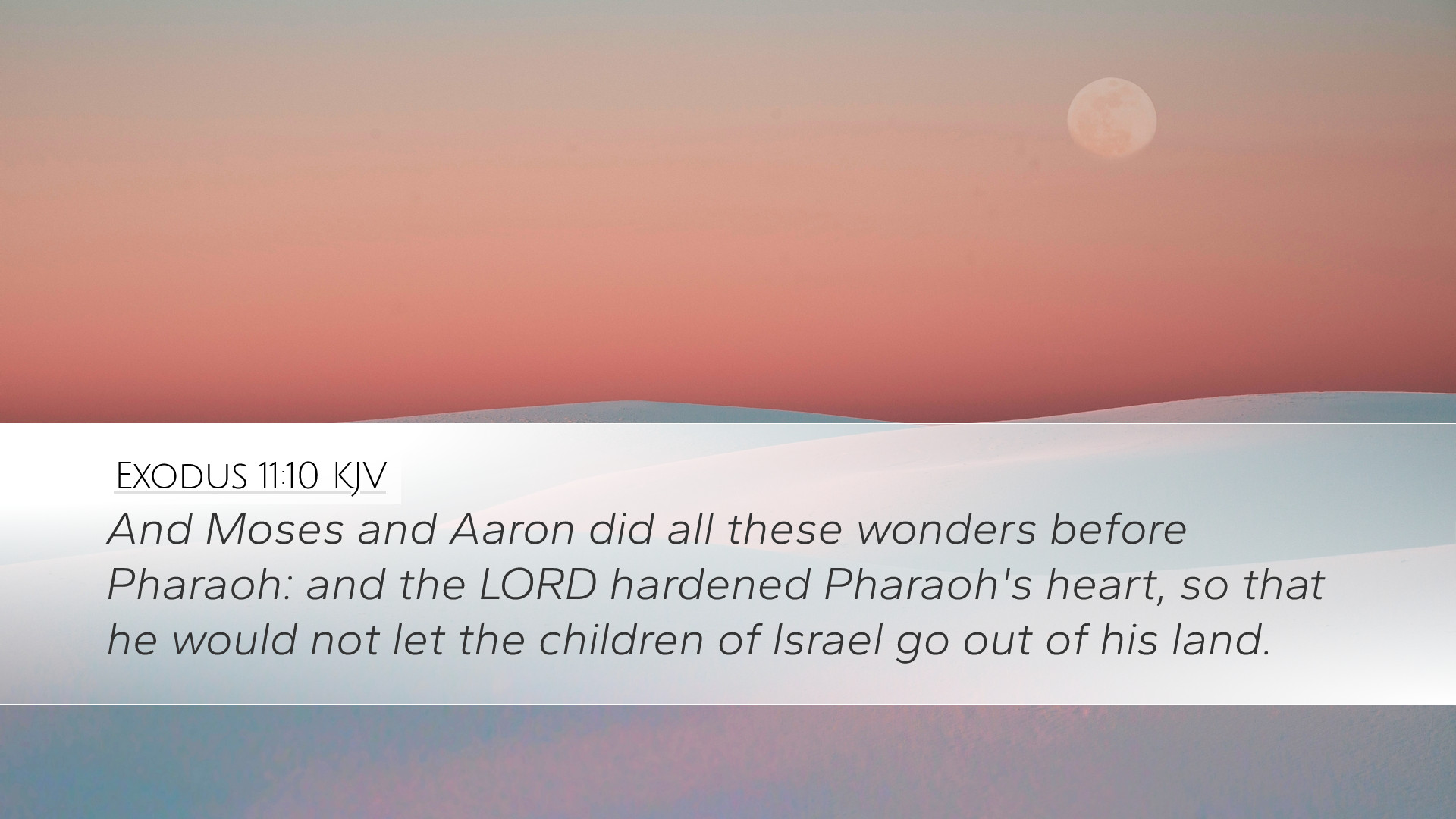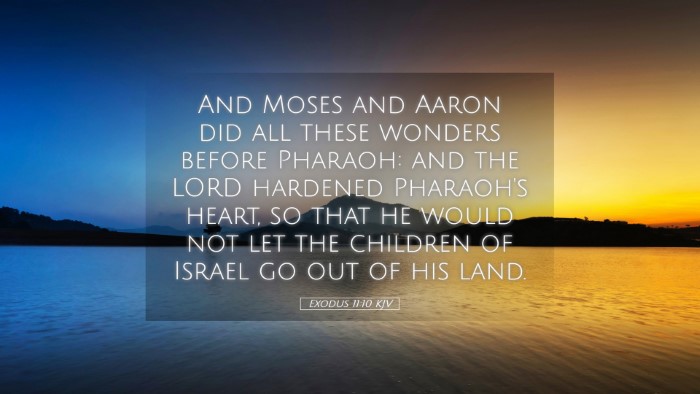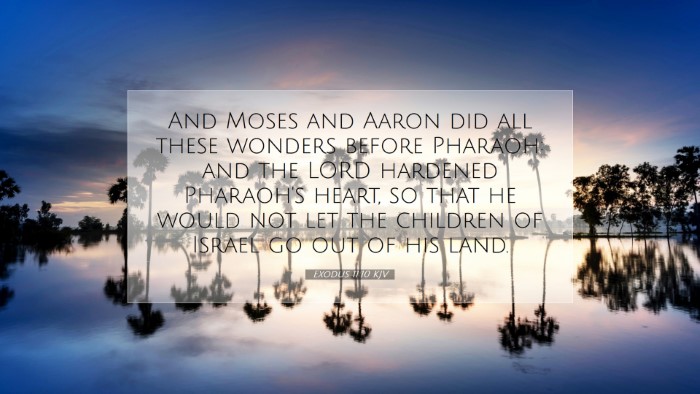Commentary on Exodus 11:10
Verse: "And Moses and Aaron did all these wonders before Pharaoh: and the LORD hardened Pharaoh's heart, so that he would not let the children of Israel go out of his land." - Exodus 11:10
Overview
This verse concludes the series of miraculous signs performed by Moses and Aaron in the presence of Pharaoh. It serves as a pivotal point in the narrative of the Exodus, encapsulating the tension between divine sovereignty and human agency. Scholars and theologians have debated the implications of God's hardening of Pharaoh's heart and its theological implications for understanding divine justice and mercy.
Insights from Matthew Henry
Henry emphasizes the significance of Moses and Aaron's role not just as leaders, but as instruments through which God's power is displayed. The phrase "did all these wonders" indicates the extraordinary nature of the signs, which were intended to demonstrate God's authority over Egypt's gods and Pharaoh himself. Henry argues that the stubbornness of Pharaoh, combined with God's hardening of his heart, reveals the interplay of human rebellion against divine purpose.
- The Power of Signs: The wonders performed are described as miracles that should have led Pharaoh to repentance but instead resulted in further hardening of his heart.
- Divine Sovereignty: The mention of the Lord hardening Pharaoh's heart serves to illustrate that God is not only aware of human actions but actively participates in the unfolding of His divine plan.
Insights from Albert Barnes
Barnes provides an in-depth look at the theological implications of God's actions in this verse. He suggests that God's hardening of Pharaoh's heart can be understood in the context of judicial hardening, where God allows a person to continue in their obstinate ways as a means of judgment. Barnes points out that this does not negate Pharaoh's personal responsibility, but rather underscores the consequences of persisting in disobedience.
- Human Responsibility: Despite God's hardening, Pharaoh had multiple opportunities to respond to the plagues and acknowledge God's power.
- Judicial Hardening: Barnes argues that God’s hardening of Pharaoh's heart serves as a warning about the dangers of ignoring divine revelation, leading to inevitable judgment.
Insights from Adam Clarke
Clarke focuses on the character of God and His interaction with humanity. He notes that the hardening of Pharaoh's heart should be understood in light of God’s overarching purpose in redeeming Israel. Clarke highlights the balance of grace and judgment, positing that while God extends grace through numerous signs, He allows Pharaoh to continue in his hardness in order to showcase His power and glory.
- God's Intentions: Clarke remarks that the hardening is not arbitrary; it serves God’s broader strategy to demonstrate His supremacy over Egyptian gods.
- Grace and Judgment: The narrative reflects both God’s mercy in providing signs and his justice in dealing with obstinacy.
Theological Reflections
This verse offers considerable ground for theological reflection. The hardening of Pharaoh’s heart raises essential questions about the nature of God’s will, the interplay of free will and predestination, and the character of divine justice.
- Free Will vs. Divine Sovereignty: This encounter challenges scholars to reconcile the coexistence of human free will with God's sovereign purpose.
- Nature of God’s Actions: The depiction of God hardening Pharaoh’s heart invites discussion on the righteous nature of God and His governance over creation.
- Lessons for Today: Modern believers can reflect on how they respond to God's dealings in their lives, considering the weight of persistent disregard for divine guidance.
Conclusion
Exodus 11:10 serves as a striking reminder of God’s powerful working in human history. The collaboration of divine authority with human responsibility is essential to understanding the context of the Exodus narrative. This verse, alongside the insights from the commentaries of Henry, Barnes, and Clarke, encourages a deeper exploration into the character of God and the response required from His created beings.


